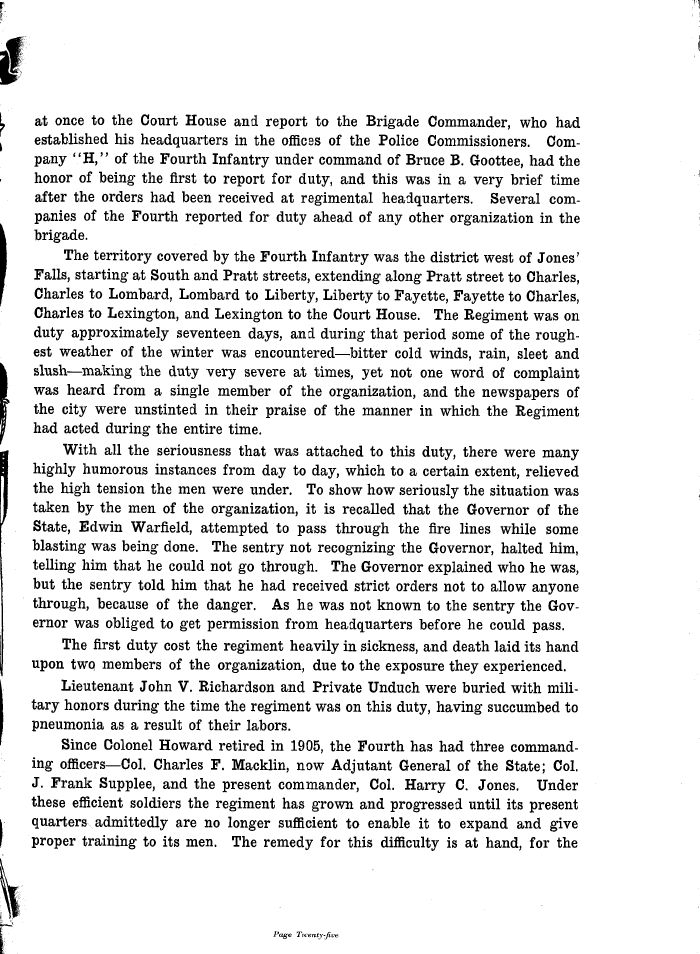 |
||||
 |
||||
| at once to the Court House and report to the Brigade Commander, who had established his headquarters in the offices of the Police Commissioners. Company "H," of the Fourth Infantry under command of Bruce B. Goottee, had the honor of being the first to report for duty, and this was in a very brief time after the orders had been received at regimental headquarters. Several companies of the Fourth reported for duty ahead of any other organization in the brigade. The territory covered by the Fourth Infantry was the district west of Jones' Falls, starting at South and Pratt streets, extending along Pratt street to Charles, Charles to Lombard, Lombard to Liberty, Liberty to Fayette, Fayette to Charles, Charles to Lexington, and Lexington to the Court House. The Regiment was on duty approximately seventeen days, and during that period some of the roughest weather of the winter was encounteredóbitter cold winds, rain, sleet and slushómaking the duty very severe at times, yet not one word of complaint was heard from a single member of the organization, and the newspapers of the city were unstinted in their praise of the manner in which the Regiment had acted during the entire time. With all the seriousness that was attached to this duty, there were many highly humorous instances from day to day, which to a certain extent, relieved the high tension the men were under. To show how seriously the situation was taken by the men of the organization, it is recalled that the Governor of the State, Edwin Warfield, attempted to pass through the fire lines while some blasting was being done. The sentry not recognizing the Governor, halted him, telling him that he could not go through. The Governor explained who he was, but the sentry told him that he had received strict orders not to allow anyone through, because of the danger. As he was not known to the sentry the Governor was obliged to get permission from headquarters before he could pass. The first duty cost the regiment heavily in sickness, and death laid its hand upon twq members of the organization, due to the exposure they experienced. Lieutenant John V. Richardson and Private Unduch were buried with military honors during the time the regiment was on this duty, having succumbed to pneumonia as a result of their labors. Since Colonel Howard retired in 1905, the Fourth has had three commanding officersóCol. Charles F. Macklin, now Adjutant General of the State; Col. J. Frank Supplee, and the present commander, Col. Harry C. Jones. Under these efficient soldiers the regiment has grown and progressed until its present quarters admittedly are no longer sufficient to enable it to expand and give proper training to its men. The remedy for this difficulty is at hand, for the Page Twenty-five |